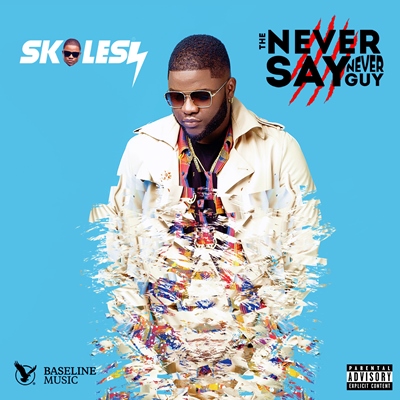When an artist sets their sights on Grammy glory early on in their career, no one truly takes them serious. But at least with that bold ambition, they let the world know where their head is at creatively and also what they got into music for.
Eventually, when music becomes a career and not just a pipe dream, artists have to deal with real life because the truth is, except you pond them in the black market, award statues really do not pay the bills. Having said that, when money becomes the only reason why an artist makes music, and the music suffers as a result, artists reinforce the narrative that wealth and artistic merit are two mutually exclusive things – they are not.
Skales burst unto the scene in 08/09 when he shook the game with the instant classic “Heading For A Grammy”, an affirmation that would go on to become his mantra. But the ex-EME artist’s Grammy search ended so long ago, we shouldn’t even be talking about it in 2017, because he most certainly doesn’t. Instead what Skales’ music is now focused on is money – making music that makes him money and making music that talks about him making money, more money than those who disagree with him or his career choices or as the singer so eloquently puts it, his ‘haters’.
On this new album, the song “Speak My Mind” perfectly summarizes Skales’ single-minded focus on getting rich.
Dem say, dem say don dey tire me now
For this money, I fit do you anyhow
Don’t let nobody deceive you
Na when you rich dem go believe you
The premise of the song is that money is the be-all and end-all but the irony is that even though Skales has come a long way and has a bit of money, he still gets jammed on the internet at a hundred miles per hour, so what gives? The truth is, even though he has produced hit song after hit song, the latest being “Cool Temper (Remix)”, Skales still doesn’t get his proper recognition, so does he really mean what he’s talking about?
If I were to choose one reason for the general indifference to all things Skales, I’d say it’s a lack of respect. The singer isn’t respected for his success, for his come-up story, for his obvious talent, for his new money and for his much-vaunted never say die attitude, and on his second solo album, the Baseline artist missed the perfect opportunity to correct this.
The album is titled The Never Say Never Guy, so I was expecting a defiant body of work from a resilient artist and for Skales to prove the reason why he is who he says he is. I was expecting more songs like “Nobody’s Business”, which was a timely release last year because it changed the narrative when Skales was at one of the lowest points in his career.
Unfortunately, the record wasn’t even included on TNSNG for whatever reason, in its place we have the generic Nigerian artist’s nothing-to-something recount on “Thank God” and “Loke Loke”. Those records do Skales’ personal story a real disservice and might as well have been on the album of any other artist who hasn’t endured a quarter of what the Kd-bred singer had to go through.
Besides money, Skales’ other love is women, a group of people that he leaves you in no doubt that he’s deeply inspired by. “Mama” is the obligatory ode to the singer’s mum who planted seeds of music in her young son when he joined her to sell cassette tapes in Kaduna. On “Booty Language”, he admires ladies whose mothers probably didn’t give them a head start at work but definitely gave them what they’re working with. Skales pays homage to Nigerian asses in as many local dialects as the memorable chorus would allow. If you ever needed an example of how Nigerian dance music can be written intelligently, Skales has provided the ideal specimen.
Other uptempo songs such as “Kpete Wicked” and the Wande Coal-assisted “Make Love In The Morning” talk about wining and dining women, partying with them and eventually, getting them to share his bed. They’re dope but the album could have done without several more of these club bangers that are laser-focused on women and sped up to make them dance. The strategy seems to be, if an “Ajaga”doesn’t become their anthem, then “Jogodo” will make them move their feet.
Skales says he recorded over 200 songs for TNSNG album before scaling down to 20 tracks. However, the album could have been more solid if a further half of the songs were thrown away and the energy redirected into making the songs that were left as dope as they could be. It’s the classic quality over quantity debate we keep having with our Nigerian artists. It’s also a mistake Skales made on his debut album Man Of The Year and one he’s repeated again.
Skales says that the difference between being on EME and being on Baseline is creative control – whereas Banky and company provided a guiding hand when the focus was on greatness and on pushing the envelope, Baseline give him a free-hand to do whatever the hell he wants. The positive is that he’s no longer consigned to a structure and no longer has to live up to the big expectations he set for himself but the negative is that Skales keeps making these albums that could have benefited from that same structure he despises, even as he continues to punch way below his creative weight class.


